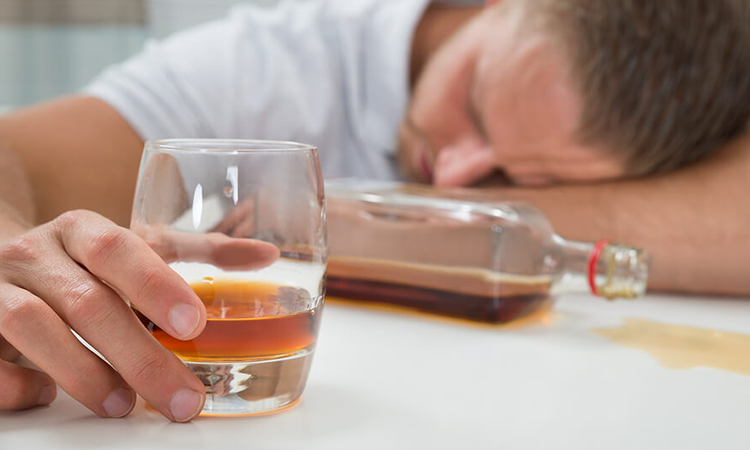
Alcohol Poisoning Treatment – Alcohol poisoning can occur when a person’s blood alcohol content (BAC) reaches a level that surpasses the body’s ability to metabolize the consumed ethanol back to within safe levels. During this time, the toxic effects of the consumed alcohol can be life-threatening.
Understanding the Causes of Alcohol Poisoning
When a person consumes an alcoholic drink, it is absorbed from the small intestine into vessels that receive blood from the bowels and stomach. It is then transferred to the liver where it is broken down by enzymes.
A person’s BAC is affected by environmental factors and by how rapidly alcohol is processed. These include the type of alcohol consumed and the rate at which it was ingested, as well as the presence of, or lack of food in the stomach. These factors increase the risk of an overdose – the faster the alcohol is intaken, the quicker the BAC rises, and the less time there is for the body to break down and eliminate it.
How to Manage Alcohol Poisoning
Signs of an alcohol overdose:
- Confusion
- Seizures
- Low body temperature
- Clammy or bluish skin
- Slow heart rate
- Slowed or irregular breathing
- Loss of consciousness
- Coma
- Severe vomiting
Severe alcohol poisoning is a medical emergency. If you suspect that someone is having an alcohol overdose, it is best to seek medical help immediately and call 911.
Alcohol Poisoning Treatment
About six people die from an alcohol overdose every day in the United States. If you suspect that someone has alcohol poisoning, and you have contacted 911, it is essential to keep the patient awake if possible, as the loss of consciousness can be hazardous and even fatal. Of note, a person’s BAC can continue to increase even when they are unconscious.
If the patient has already lost consciousness, position them on their side to avoid the risk of aspirating on vomit. Because alcohol poisoning can lead to hypothermia, it is also vital that they are kept warm.
Do not attempt home remedies for alcohol poisoning, such as drinking coffee, taking a cold shower and “sleeping it off.” These are myths and can make the situation worse. Alcohol overdose is a life-threatening emergency, and only appropriate and swift medical intervention can treat a patient safely.
Unfortunately, there is no way to counteract the effects of intoxication directly, so only time and supportive care are the primary treatment options for an alcohol overdose. Vitally, however, the patient should be supervised around the clock until their condition improves to ensure they do not aspirate their vomit or have any problems breathing.
During treatment, medical personnel may administer oxygen and intravenous fluids to help keep a person safe and hydrated. The patient may also be given vitamins and glucose since an alcohol overdose can lead to hypoglycemia or low blood sugar.
During a severe instance of alcohol poisoning, the patient’s stomach may be pumped to eliminate alcohol that has not yet metabolized. IV-administered medication such as Valium or Ativan may also be given to reduce the risk of potentially fatal withdrawal symptoms, such as seizures or delirium tremens (DTs).
How to Avoid an Overdose
You can avoid alcohol poisoning by pacing yourself when drinking and limit the number of drinks you have in one session. Drinking water in between alcoholic beverages is helpful to prevent dehydration. Likewise, do not drink on an empty stomach.
Participating in drinking games that encourage you to drink more than you are physically capable reduces your ability to keep track of alcohol intake and increases the risk of alcohol poisoning.
Alcohol is a central nervous system (CNS) depressant, so do not consume other CNS depressant drugs such as sedatives and painkillers. Combining multiple CNS depressant drugs multiplies the risk of life-threatening respiratory depression and other dangerous complications.
Treatment for Alcohol Addiction
Experiencing an episode of alcohol poisoning is a telling sign that intervention and/or treatment for alcoholism is needed as soon as possible. Problematic drinking includes binge drinking, drinking every day, and any level of alcohol consumption that adversely affects a person’s health, family and social interactions, and overall quality of life.
Recovery in Tune employs caring addiction specialists and other healthcare personnel trained to manage customized programs that treat the symptoms of alcohol addiction and withdrawal. Services include, but are not limited to, the following:
- Behavioral therapy
- Individual therapy
- Group therapy
- Counseling
- Support groups
- Ongoing aftercare
Behavioral therapy helps alcohol abusers develop healthier coping mechanisms and replace negative thoughts and feelings with more constructive responses. Medication-assisted treatment can also be very effective at reducing cravings. Medications such as naltrexone have been shown to help formerly heavy drinkers achieve abstinence and enjoy long-lasting sobriety.
Also, after discharge from treatment, clients still receive support and can participate in our aftercare program and alumni activities.
If you or your loved one is suffering from substance abuse, please seek help as soon as possible. You can reclaim your life, free from drugs and alcohol! Contact us today and discover how we can help you begin your recovery journey!
Related: Can You Die From Alcohol Withdrawal?